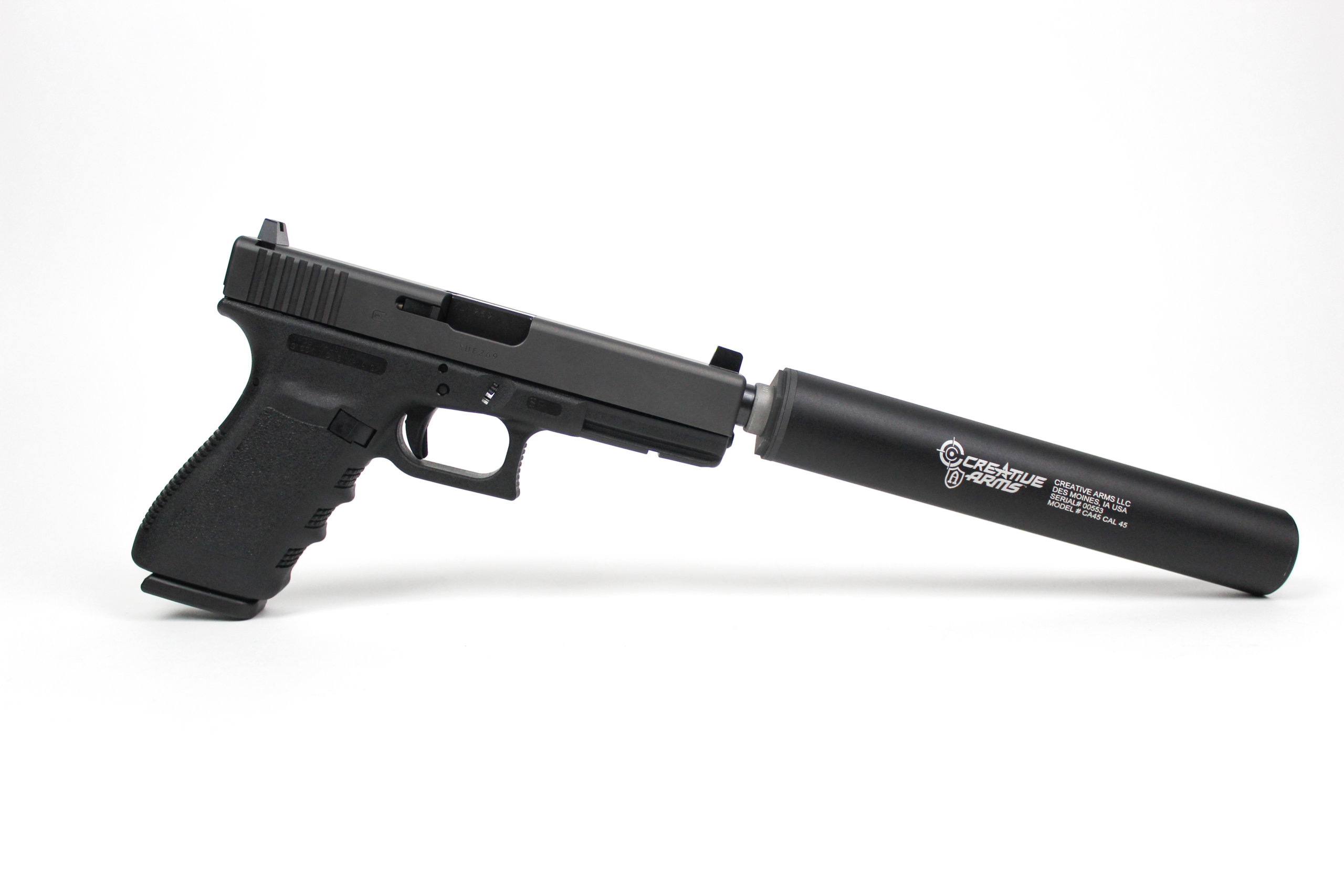So you’re thinking about owning a suppressor?! This post is purely to educate you on the FAQs of suppressor ownership. Scroll on down to learn more about owning your first suppressor.

What is a suppressor?
Suppressors/Silencers/Gun Mufflers…etc. are all the same thing, they suppress or mitigate the sound of a firearms report by slowing the gasses and pressure exiting the barrel, similar to how a muffler works on a car.
Are suppressors Legal to own?
To start off this post I thought we should talk about the first question I consistently get asked… Are suppressors legal to own? The answer is HELL YES!!
Suppressors are regulated under the National Firearms Act (NFA) of 1934, which falls under the purview of the Bureau of Alcohol, Tobacco, Firearms and Explosives (ATF). To legally purchase or possess a suppressor you must:
- Be at least 21 years of age to purchase a suppressor from a dealer.
- Be a resident of the United States.
- Be legally eligible to purchase a firearm.
- Pass a BATFE background check with a typical process time of 8 to 10 months.
- Pay a one time $200 Transfer Tax.
- Reside in one of the 42 states that currently allows civilian ownership of suppressors.
What type of suppressor should I buy?
Hopping into the suppressor world can be a bit overwhelming with different calibers, mounting options, materials, and politics when it comes to the firearms industry. With that being said here are a few points to think about before looking for your first suppressor.
What calibers do you want to suppress?
This is the first question I always ask a potential customer looking into suppressors. The most popular caliber to suppress hands down is the .22lr, frankly because it is the easiest to suppress and cheapest to shoot. But often times manufacturers categorize their suppressors into the following:
- Rimfire (.22lr, .22subsonic, .17HMR, .22MAG)
- Pistol (.9mm, .40, .45cal)
- Centerfire (5.56/.223, 300blk, .308, 6.5CM, 6.8SPC 300WIN)
- Big Bore (.338 Lapua, .50cal, etc)
Each of these categories also range in pricing, and can be found just like firearms
- Rimfire $150-$500
- Pistol $500-$1300
- Centerfire $600-$1500
- Big Bore $1000+

How do I purchase a suppressor?
Purchasing your first suppressor can be a bit of an overwhelming experience, as many people are misinformed about the process.
firstly, you will need to either find a local dealer that has suppressors in stock to sell or has an SOT* so that we can transfer a suppressor to the dealer to then be transferred to you.
* (Special Occupational Taxpayers are a group of Federal Firearm Licensees in the United States who manufacture, import and/or transfer NFA weapons.)*
For the sake of discussion we will assume that you have already found a suppressor that you are ready to purchase. The next step is to figure out how you would like to purchase your suppressor.
Purchasing a suppressor as an Individual vs. A Trust
*update: we now can do electronic fingerprints in-house, no need to mail anything in physically*
Individual
Purchasing as an individual is the simplest way to purchase a suppressor, however there are some limitations that come with owning it as an individual.
Pros:
- Paperwork is limited to just the owner of the suppressor
- Average wait times seem to be a bit quicker on individuals
Cons:
- Individuals MUST be present with approved form 4s if another shooter would like to use the suppressor (meaning you cannot legally lend your suppressor to your hunting buddy unless you are physically going to be there)
- At the time of death of owner, the suppressor can be transferred to a individual who must complete another background check.
Trust
Purchasing a suppressor with a trust is another great way to complete your suppressor paperwork. The initial work needed ahead of completing the paperwork is a bit more, however the trust allows you to be more flexible in the ways the suppressor can be used.
Pros:
- Multiple trust members can use the suppressor on their own (must still have paperwork with them at the time of use)
- People can be added or removed from the trust easily
- Beneficiaries can be listed in the trust for at the time of death without the need for another background check / transfer
- The trust can own multiple suppressors at any given time
Cons:
- Initial set up of the trust is required before the purchase of the suppressor (average of 100-125 dollars online)
- Fingerprints, Photo IDs, and separate background forms are required for every person listed in the trust at the time of purchase for each suppressor.

Completing Paperwork
Now that we’ve got the two main options of how to purchase your suppressor, you now may know which option you are looking into. Once decided your dealer or manufacturer (us) will complete the ATF paperwork with you. To make it easier on your dealer, you should come prepared with the following documents:
Individual:
- (2) FD-258 Fingerprint Cards completed from your local police department or trained professional.
- (2) Physical Passport Photo Ids (can be done at walgreens or other similar drug store)
Trust:
- (1) Copy of Trust Documents
- (1) Completed ATF Form 5320.23 form for each trustee
- (2) FD-258 Fingerprint Cards completed for each trustee from your local police department or trained professional.
- (2) Physical Passport Photo Ids of each trustee (can be done at walgreens or other similar drug store)
Coming to your suppressor meeting prepared will help your dealer complete the paperwork fully and quickly!

